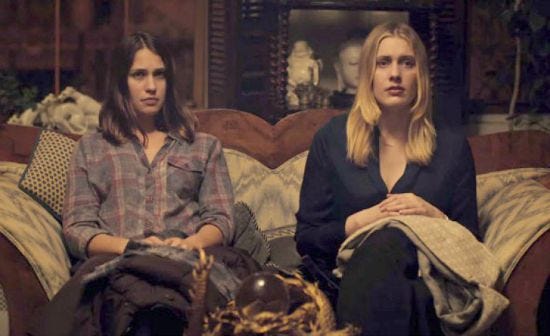Mistress America

Many critics and audiences went nuts for “Frances Ha,” the last collaboration between writer/director Noah Baumbach and actress/screenwriter Greta Gerwig, but not me. I found it an unfocused and rambling portrait of a twentysomething woman trying to find a purpose in New York City. So I approached their next film together, “Mistress America,” with some hesitation.
Even though thematically the movies are kissing cousins, “Mistress” is a much more fully realized and vibrant work. Here Gerwig is not the subject of the story but its object. Her character, Brooke Cardinas, is a 30-year-old New Yorker who seems to have a lot of jobs and grand ideas, but all of them are transitory. She’s got a load of panache and personality, the sort of person who lights up a room and effortlessly takes it over.
She is described, aptly, as a woman who is spending her youth well.
It’s no wonder that Brooke is captivating to the actual protagonist, Tracy Fishko, an 18-year-old Barnard College freshman. They’re thrown together because Tracy’s mom and Brooke’s dad are marrying each other, which means they’re soon to be step-sisters. Brooke takes Tracy, who’s been struggling to fit in at school, under her ample wing for a night of fun and freedom, essentially auditioning to become her role model and muse.
Soon Tracy, who aspires to be a writer but has been declined by the hoity-toity campus literary society, is penning a vivid and not-very-well-disguised portrait of Brooke — her fearlessness and foibles, her bright imaginings and doomed plans. Tracy reads portions of her short story throughout the film, serving as a sort of narration.
This is a very, very smart film about how people consciously and unconsciously are inspired by and imitate others. It’s also very self-aware, such as when the two women are silhouetted at night against a lit-up bridge as a groovy tune plays on the soundtrack, and one says to the other: “We look like we’re in a song!”
Tracy is played by Lola Kirke, who’s had a few small roles here and there, but announces herself with this nuanced, emotionally true performance. She has that rare ability to let the audience see her thinking, so we are swept along with Tracy as she beholds the amazing Brooke and is inevitably pulled toward her and starts emulating her.
Tracy has her own small circle of friends, notably Tony (Matthew Shear), a sensitive beta-male type who shares her literary ambitions. They hang out during first semester; both rejected by the lit society, and form their own little circle of trust. It seems like they must end up as a couple, but as often happens in real life the current pulls us in other directions. Tony winds up dating Nicolette (Jasmine Cephas Jones), who is defined by her jealousy.
Things really get interesting when Brooke’s plans to open a restaurant hit a financial snafu, and she’s led to approaching a wealthy ex-boyfriend, Dylan (Michael Chernus), for the cash. Unfortunately, he’s now married to Brooke’s former best friend, Maimie-Claire (Heather Lind), who — as she sees it — stole her man, her T-shirt design, her cats and her richly deserved life of idle comfort.
Tracy and Brooke decamp to Michael and Maimie-Claire’s extravagant Greenwich, Conn., mansion, along with Tony, who’s providing the ride, and Nicolette, who’s providing the suspicion. This whole gaggle shows up on their doorstep, and at first I had visions of the same thing happening in “Funny People,” a potentially great movie that flushed itself down the commode with an ill-advised and rambling visit to an ex’s abode.
But this encounter, which essentially takes up the last third of the film, merely brings all the characters into sharper focus. The dynamic between Tracy and Brooke is examined, exposed and fundamentally altered. The muse gets P.O.’d at the artist.
The dialogue is razor-sharp and eminently quotable: “It was too much fun to agree with her.” “He’s the sort of guy I hate, except that I’m in love with him.” “I’m the same! I’m just the same in a different direction now.”
Smart, brave, probing and sensitive, “Mistress America” shows us that movies about messy people don’t have to be a mess themselves.



